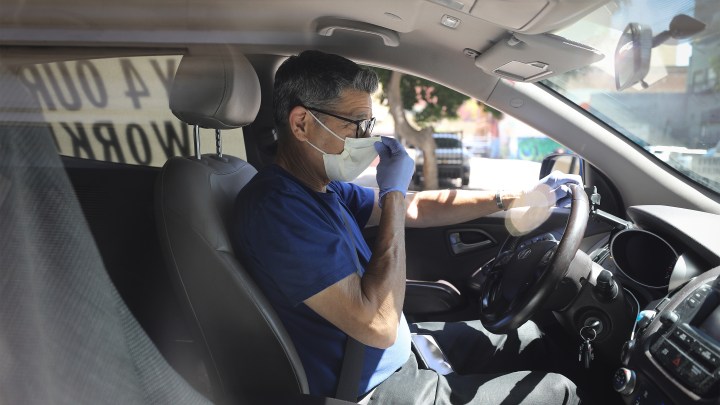
California court to rule on gig worker classification
California court to rule on gig worker classification

A California court is expected to hand down a big ruling Thursday about how gig workers are classified.
The state attorney general and the city attorneys of Los Angeles, San Francisco and San Diego have asked for an injunction that would force Uber and Lyft to immediately reclassify their drivers as employees, rather than independent contractors. And which side of that line the workers fall on has taken on added significance during the pandemic.
It’s all about the safety net. Traditional full-time employees — for the most part — have one to fall back on. Independent contractors like gig workers? Not so much.
“The option is between working or losing the roof over my head,” said Edan Alva, a Lyft driver who lives outside San Francisco. He got sick in January with what he thinks was the regular flu.
“And since I don’t get sick days, there is no way for me to stop working,” Alva said. “So I was working while having the symptoms, which I hate myself for doing it. It’s dumb.”
Paid leave, subsidized health insurance, unemployment benefits — they’ve all become crucial during the pandemic. They’re also usually paid for by companies. New emergency laws like the federal CARES Act have provided some of these benefits to workers who aren’t full-time employees.
“But I think it’s just revealed how many holes we have for too many people in our economy in general,” said David Weil, a professor at Brandeis University. He’s the author of “The Fissured Workplace,” about how the traditional work model the country’s safety net was built on has been breaking down.
That leaves some workers without benefits and the government with fewer resources to respond to emergencies.
Because gig platforms like Uber and Lyft don’t pay into unemployment insurance like regular employers, the federal government is now shouldering the cost of providing relief to gig workers who’ve been sidelined by the pandemic. And state unemployment trust funds are quickly running out of money.
There’s a lot happening in the world. Through it all, Marketplace is here for you.
You rely on Marketplace to break down the world’s events and tell you how it affects you in a fact-based, approachable way. We rely on your financial support to keep making that possible.
Your donation today powers the independent journalism that you rely on. For just $5/month, you can help sustain Marketplace so we can keep reporting on the things that matter to you.


















